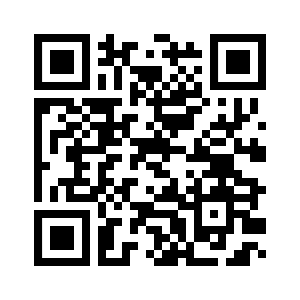Gas Sponsorship
09.19.25What is Gas Sponsorship?
Imagine trying to play an arcade game, but every time you wanted to press a button, you had to stop and insert a specific, hard-to-find coin. It would quickly get frustrating. In many ways, that's what interacting with some blockchain applications can feel like. Every action requires a network fee paid in a specific token. Gas sponsorship is the clever solution that makes this experience feel more like a free-to-play game, where someone else handles the coins for you.
Gas sponsorship is a model where a third party, usually a decentralized application (dApp) or a wallet provider, agrees to pay the network fees on your behalf. Instead of you needing to maintain a balance of a network's native token (like ETH on Ethereum) just to cover transaction costs, the fee is paid in the background by a sponsor. This simple but powerful concept is a cornerstone of creating a truly seamless and user-friendly blockchain experience.
The Friction of Network Fees
Network fees are an essential part of how blockchains work. They compensate the people who run the network for processing your transactions and keeping everything secure. While necessary, they create several points of friction that can make using a dApp feel clunky, especially if you are new to the space.
The Native Token Requirement: To do anything on a blockchain, you must hold its specific native token. This means constantly acquiring and managing different tokens just to pay for operations, which can be a hassle.
Onboarding Hurdles: For a newcomer, the first step is often the hardest. Being told you need to buy one token just so you can use another can be confusing and creates a significant barrier to entry.
Interrupted Experience: Being prompted to approve a network fee for every small action breaks the flow of using an application. It adds a layer of complexity to what should be simple interactions, like liking a post on a decentralized social network or making a move in a blockchain game.
Gas sponsorship directly tackles these problems by abstracting away the fee-paying process from your view.
How Gas Sponsorship Works
Gas sponsorship is made possible by advancements like Account Abstraction (EIP-4337), which allows for more flexible transaction handling through smart contract wallets. The key player in this process is a special smart contract called a "Paymaster."
Here is a simplified breakdown of the process:
You Initiate an Action: You decide to do something within a dApp, like minting a new digital collectible or swapping one token for another.
A UserOperation is Created: Your smart wallet bundles your intended action into a package called a UserOperation. Critically, this package can specify a Paymaster contract that has agreed to cover the fee.
The Paymaster Steps In: The dApp developer funds a Paymaster contract with the network's native tokens (e.g., ETH). When you perform an action, your wallet sends the UserOperation to this Paymaster.
Transaction is Processed and Paid: The Paymaster validates the request and forwards it to the blockchain for processing. It pays the required network fee from its own balance.
Your Action Completes: The blockchain executes your intended action, like receiving your new collectible, without you ever having to approve or pay a network fee directly.
From your perspective, the action just happens. The dApp developer treats the network fees as an operational or marketing cost, similar to how a traditional company might pay for its own server hosting.
The Significance of Gas Sponsorship
This model is more than just a convenience; it fundamentally changes the dynamic between you and the applications you use, unlocking several key benefits.
A Truly Seamless Experience
Gas sponsorship is essential for applications that involve many frequent, low-cost interactions.
Blockchain Gaming: Players can perform in-game actions, craft items, or battle opponents without being bogged down by constant fee approval pop-ups.
Decentralized Social Media: You can like, comment, and share content freely, making the experience feel just like a traditional social platform.
Digital Collectibles: Mints and airdrops can be distributed to a wide audience without requiring each person to have native tokens ready to claim their digital asset.
Driving dApp Adoption
For dApp developers, sponsoring network fees can be a powerful tool for attracting and retaining customers.
Lowering the Barrier to Entry: By sponsoring the first few transactions for a new person, a dApp can create a frictionless onboarding process. Someone can start using an application immediately, experience its value, and worry about fees later.
Improving Retention: A smooth, uninterrupted experience makes people more likely to return to an application. Removing the constant friction of fee payments is a major factor in improving usability.
Enabling New Business Models: Developers can get creative. They might offer a limited number of sponsored transactions per day, provide a "gasless" experience as part of a premium subscription, or sponsor transactions that are core to the app's function.
Final Thoughts
Gas sponsorship is a critical innovation in the mission to make blockchain technology accessible to everyone. It shifts the burden of network fees away from the individual and treats them as a cost of doing business for the applications providing the service. This moves the ecosystem away from a model where every participant needs to be an expert in network mechanics and toward a future where the technology is powerful yet invisible.
By allowing you to focus on what you want to achieve rather than how you are going to pay for it, gas sponsorship helps create decentralized applications that are not just secure and transparent, but also intuitive and enjoyable to use. It is a key ingredient for onboarding the next wave of people into a more open and decentralized digital world.
Disclaimer: Nothing in this content is intended to be professional advice, including without limitation, financial, investment, legal or tax advice. Ulys is not responsible for your use of or reliance on any information in this entry as it is provided solely for educational purposes. Purchasing crypto assets carries a high level of risk, including price volatility, regulatory changes, and cyber attacks. On-chain transactions are irreversible once confirmed, and errors may result in permanent loss. Please make sure to do your own research and make decisions based on your unique circumstances. Ulys does not itself provide financial services or engage in regulated activities such as money transmission, custodial services, securities brokerage, or lending. Any licensed financial services (e.g., payment processing, crypto-to-fiat transactions, or lending) are facilitated entirely by third-party providers, who are responsible for obtaining and maintaining the necessary licenses under applicable U.S. federal and state laws.
Risk Disclosure: Digital asset purchases come with risks, including the potential loss of funds. Always research before making financial decisions. Ulys does not provide financial, investment, or legal advice.

